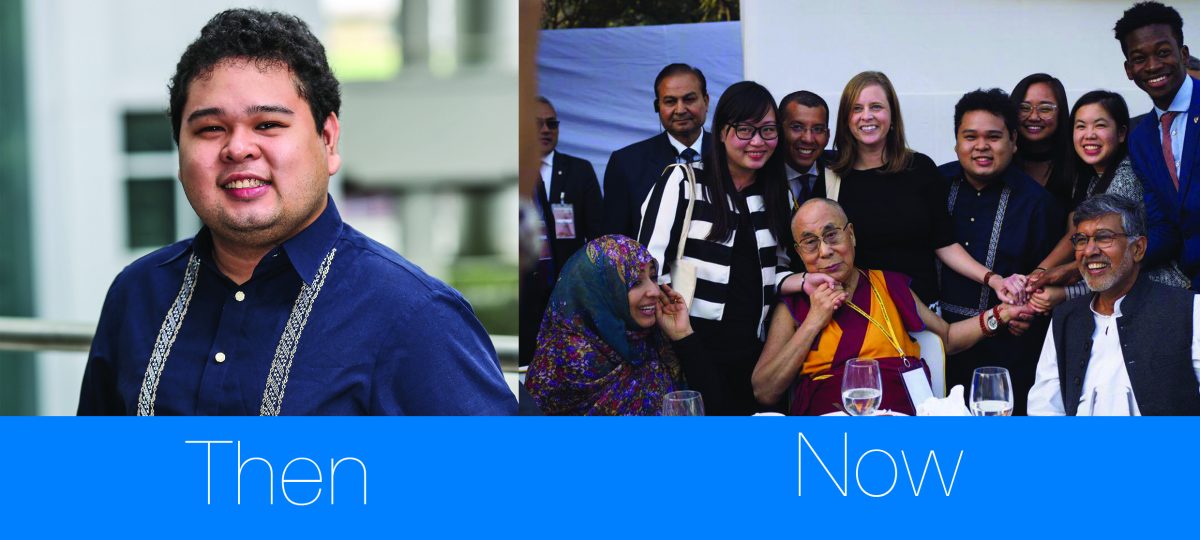Behind open doors
At the May 2016 press launch of Open Doors: An IOM X Production, an Indonesian woman came up to me and said, “This is really good. It is so good to see positive stories, rather than negative ones, used to teach a lesson”.
The woman, who had previously worked as a domestic worker in Hong Kong, went on to tell me that, although it is important for news media to report on how domestic workers are being mistreated and exploited by their employers, these kind of stories sometimes further influence how employers treat their domestic workers as lower class citizens because they think it’s the norm. She said that stories of respect and professionalism between the employer and the domestic worker need to populate media too, in order to make these stories the norm, and to make this type of work relationship ‘cool’.
IOM X is always on board to help make something look cool, positive and empowering. Research has shown that raising awareness about risks, or negative messaging like ‘don’t do this, don’t do that’ are not very effective. An overly negative campaign will erode trust from your target audience[1]; it will leave them feeling alienated or discouraged, rather than motivated.[2] The mistreatment of domestic workers is not new, but like many other organizations advocating for the fair treatment of domestic workers, IOM X embarked on the challenge to change how we talk about domestic workers for the better: “Do this, do that!”
Open Doors: An IOM X production is a long-form video that follows three different stories of migrant domestic workers working in Malaysia, Singapore and Thailand. The video aims to encourage employers to respect and treat their domestic workers fairly. To assess its effectiveness, IOM X hired research agency Rapid Asia to conduct an impact assessment in Thailand and Indonesia with 600 people, including employers of domestic workers and the general public. In both countries, people who identified as employers of domestic workers represented nearly 50% of the respondents.
In Thailand, interestingly, employers who hire Thai domestic workers and those who hire migrant domestic workers recorded very different results. All employers recorded positive intention to treat domestic workers fairly; negative attitudes (such as ignorance discrimination) were more prominent amongst those who hire Thai domestic workers than those who hire migrant domestic workers. This could be explained by pervasive negative attitudes in Thailand toward migrant workers in general. These findings clarified that, although the video is an effective tool in raising awareness about domestic worker rights and maintaining positive behaviours, IOM X should continue to do research and produce content that address negative attitudes towards migrants workers.
The lesson learned in Indonesia is that, even after watching Open Doors there still seemed to be gaps in knowledge of, and attitude towards, fair working hours. The survey found that 80% of employers do not think that live-in domestic workers should decide how to spend their free time and 50% of employers do not give their domestic workers one day off per week. This indicates that a majority of employers think that domestic workers should be available to work at any time, especially if they are live-in, regardless of how many hours they have already worked in a day or week. This would also explain why there was some confusion around the message of “one day off”; some respondents did not understand fully whether it was one day off per week or time off as needed for extenuating circumstances. The video proved to be an effective tool to raise awareness about the exploitation of domestic workers and promotion of their rights, however, in the future, IOM X will consider creating content/activities that specifically target Indonesian audiences and address the issue of “time-off”.
Changing the conversation from negative to positive in terms of highlighting the positive contributions that domestic workers bring to families and society is not easily achieved with one video. However, Open Doors did take a step in the right direction. In Indonesia, 91% of viewers took at least one step towards the desired behaviour change of respecting domestic workers rights. In Thailand, more than half of the viewers said they learned something new and would speak to others about the issue of domestic worker rights.
Read IOM X’s full Impact Assessment of Open Doors for Thailand and Indonesia.
(English) Editor’s choice

(English) Where are they now?: Joey, Philippines
sorry not available!

(English) Where are they now?: Joey, Philippines
sorry not available!















